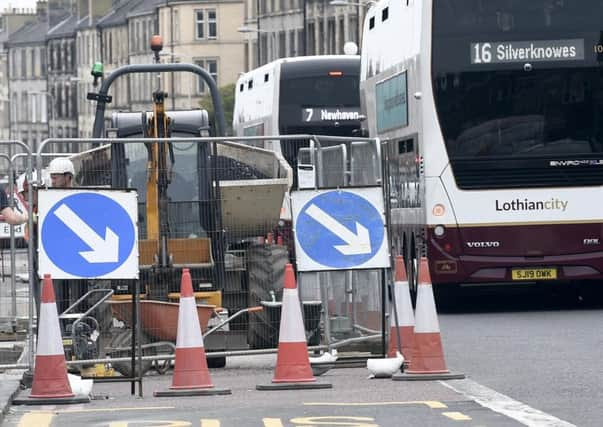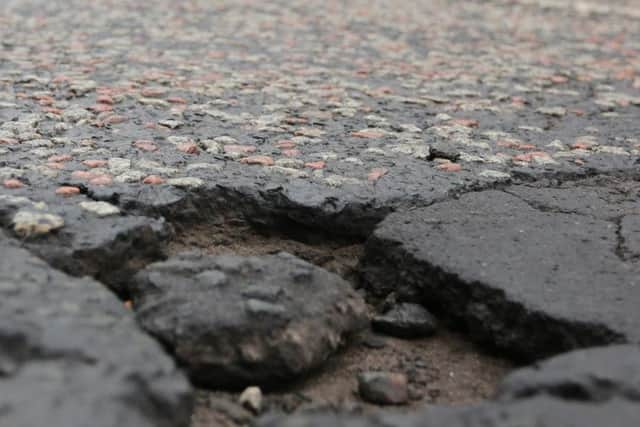How causing potholes could soon be a criminal offence


We’ve all done it. Tripped or stumbled on an uneven or potholed pavement because of badly completed roadworks.
If you’re lucky enough not to have fallen foul, you will have had to dodge round similar holes on roads in a car or on a bike - or felt the uncomfortable thump when your bus goes over them.
Advertisement
Hide AdAdvertisement
Hide AdBut it was far worse for wheelchair user Keith Robertson, who related his experience to MSPs this week.


Mr Robertson’s wheelchair caught in a sunken road repair beside a car park at Edinburgh Airport, catapulting him face first onto a road, knocking him unconscious in front of vehicles.
That’s pretty ironic when the airport has just been named by flights comparison website Netflights as the UK’s best airport, along with Glasgow, for accessibility for passengers with disabilities.
Mr Robertson said he had been lucky enough to have been assisted by drivers who stopped, but he suffered concussion, cuts, bruises and was badly shaken.
Advertisement
Hide AdAdvertisement
Hide AdHe told members of Holyrood’s connectivity committee he had “come flying out” of his wheelchair because there had been no inspection of the roadworks after they had been completed by a utility company.
In his written evidence on behalf of the Scottish Government-appointed Mobility and Access Committee for Scotland advisors, Mr Robertson also set out the devastating impact roadworks could have on disabled people.
He said they could pose a “considerable barrier” to reaching shops and amenities, which was “extremely worrying, frustrating and could lead to a quick and dramatic reduction in a person’s quality of life”.
You only need to think how tricky pavements can be to negotiate, where barriers and fencing seem positioned entirely to suit the roadworks rather than people, to realise how problematic they are for the less able bodied.
Roadworks a fact of modern life
Advertisement
Hide AdAdvertisement
Hide AdHowever, things are gradually improving, apparently. The Scottish Road Works Commissioner, who polices such things, told me yesterday the firms involved were “absolutely aware” of the need to comply with best-practice regulations.
Angus Carmichael said there was a much greater awareness among those involved with digging up the road of the need to cater for everyone, including wheelchairs, pushchairs and cyclists, when putting up barriers.
The law is also getting beefed up, with the code of practice for roadworks safety, known as the “red book”, to become mandatory for all those involved in Scotland under the forthcoming Transport Bill.
Up to now, Scottish councils, which are responsible for all but trunk roads in their areas, have only had to follow the code on a voluntary basis.
Advertisement
Hide AdAdvertisement
Hide AdThe change means that failure to follow the code could now be a criminal offence.
Mr Robertson has welcomed the reform because he said the code detailed how access must be created around or through roadworks, which reduced the risk of isolation for disabled people from illegal obstacles.
But it should be remembered that however much we hate roadworks, they reflect the way we live, such as damage caused by the volume of traffic and the demand for improved utilities, such as faster and more widely available broadband. However, that should never be at the expense of the job done badly, considering the widespread impact it clearly causes.
